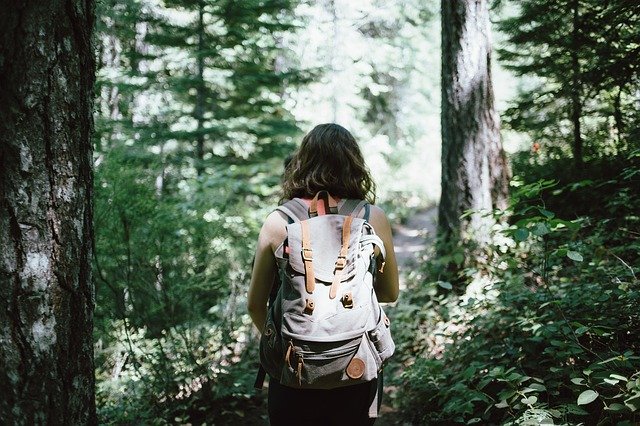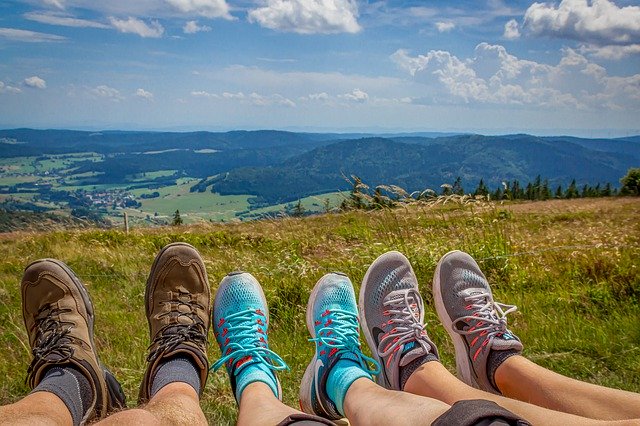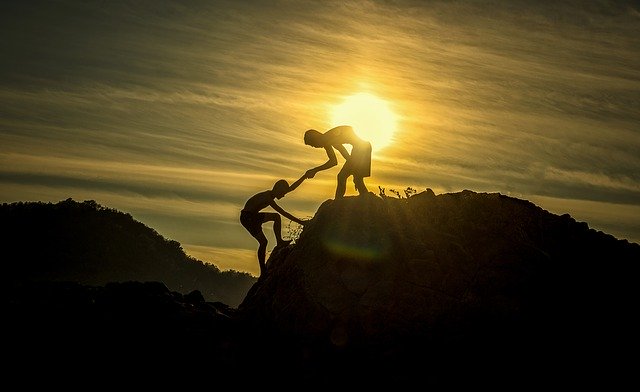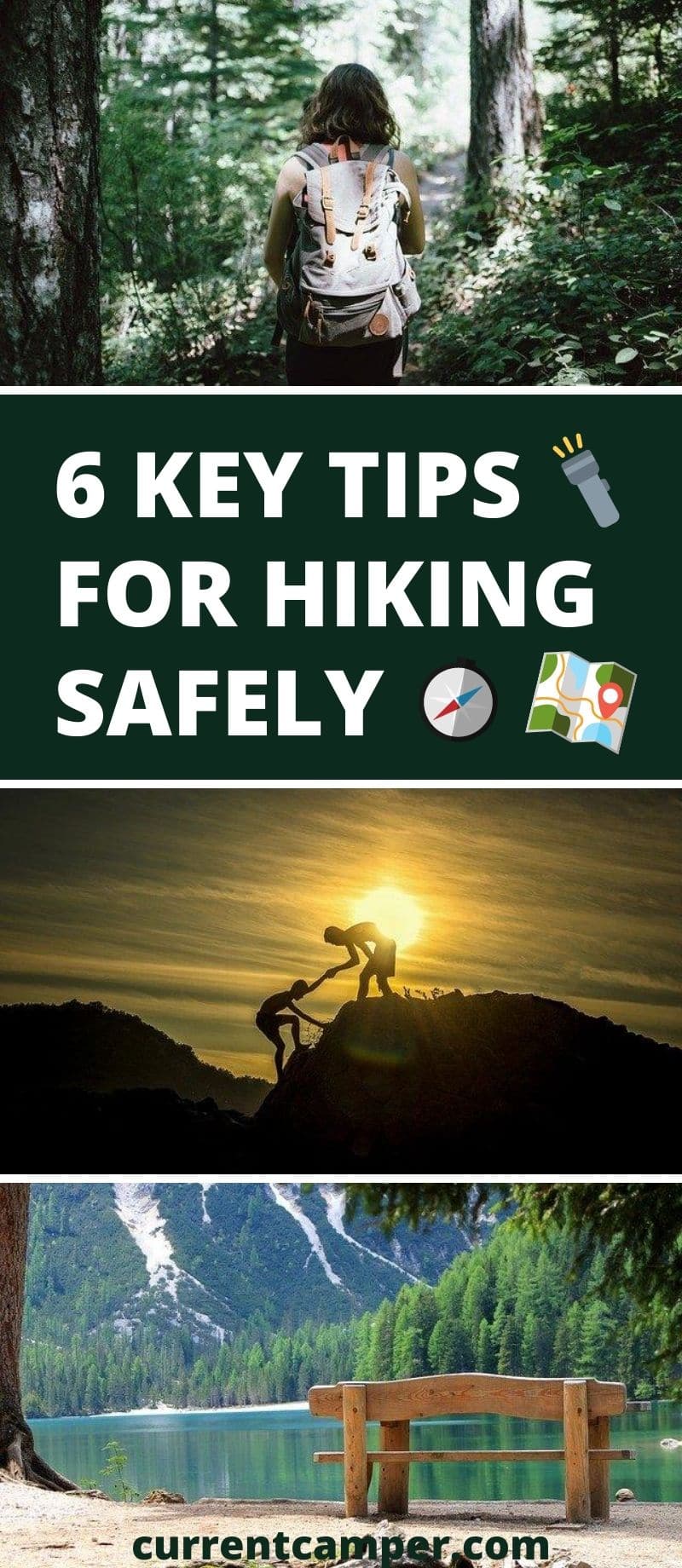One of the main keys to hiking safely is to always be prepared. Immersing yourself in nature and going for a long hike can be a great way to get away and destress from the hustle and bustle of everything going on.
However, as peaceful of an experience as it can be it does come with some risks.
Luckily there are a few things you can do to help you avoid any complications or at least be prepared to deal with an emergency should you need to.
6 Key Tips to Hiking Safely

Have A Plan Before You Go
Before heading out make sure you have a plan and make sure to share that plan with someone not traveling with you or an emergency contact. You’ll need to figure out where you’ll be starting and at what time, research the trail and its path, and finally estimate how long the entire hike will take. Once you have that figured out share that with your emergency contact and inform them that you’ll call and check-in once you’re done.
If you don’t have a point person and are deciding to hike solo, you can always stop by the visitor center within the national park and inform a park ranger. If you don’t return on time they’ll be able to send out a search party.
Hike Safely In Numbers

When planning your trip, call a friend and ask if they want to go with you. Whenever possible try to go with at least one other person, that way should anything happen you’re not stranded alone and there’s someone else who can go and try to get help.
READ MORE: 10 Camping Safety Tips
Don’t Wander Off The Hiking Trail
I can’t stress this enough, once you’ve started your trek, stay on the trail. It can be very easy for you to get turnaround and lost, putting yourself and dangerous situation. Especially, if you’re not properly prepared with key essentials to hike safely. This also makes it difficult for any potential search party to find you.
When hikers decide to go off the designated trail, they creating social trails, which erodes untouched vegetation and may disturb any wildlife in the area. This also violates key hiking and camping principles of “Leaving No Trace” when enjoying the great outdoors. This may also confuse and jeopardize the safety of hikers traveling through after you who might think that’s part of the trail.
Make Sure You Have The Essentials to Hike Safely
(PIXABAY)
There are a few items that every hiker should always travel with, no matter if you’re going on a short or long hike. These key essentials will help get you out of trouble or at least make things a little less stressful should anything happen.
- Starting off with a map and compass of the trail and area you’ll be hiking. You can get a copy either print at home before you head out or you can stop by the visitor center and pick one up on the day before you start.
- Always pack a rain jacket or poncho. You never know when the weather is going to take a turn for the worst. You don’t want to get caught in the rain unprepared in the middle of your hike.
- Pack a headlamp or flashlight for added hiking safety. Should you take longer than expected and need to hike in the dark you want to make sure you’re prepared.
- Make sure you have a first aid kit. This can include a small packet or bag that has at least the basics. For example, bandages, antibiotic ointment, medical tape, antiseptic wipes, over the counter acetaminophen or ibuprofen, and Moleskin for blisters.
- Depending on the length and difficulty of the hike you’ll also want to consider packing a tent or tarp that can be used as a shelter.
READ MORE: 7 Hiking Essentials For Beginners
Water And Food
You also want to make sure you have enough water and food. Depending on the length of the hike, it’s normally recommended that you pack a little extra than what you think you’ll need. This will not only help you avoid getting fatigued quicker but will keep you well hydrated and fueled throughout your hike. It’s also helpful to research ahead of time whether there are any spots where you’ll be able to refill your water bottle or hydration pack. You might also want to consider buying electrolyte tablets, to drop into your water bottle.
Don’t Overdo It

Finally, don’t overdo it on your first hike. Make sure you’re listening to your body and how you’re feeling. Don’t push yourself more than what you’re comfortable doing at the moment. If you’re getting tired and you still have ways to go or the weather is starting to turn, just turnaround and start heading back. There’s absolutely nothing wrong with cutting your hike short. Hiking is meant to be an enjoyable pastime. You don’t want to make this a miserable and even potentially dangerous experience because you’re so determined to get to the end.
What hiking safety tips do you live by while out on the trails?
Pin it!

